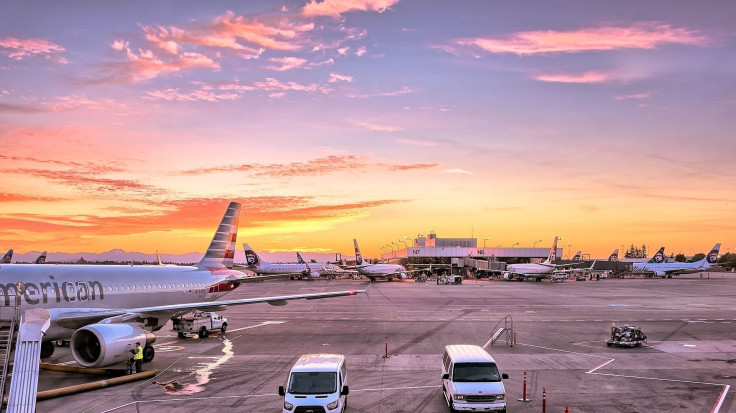US Laptop Ban: Computers On Flights From Europe To US Could Be Banned In Cabin

The Trump administration is expected to expand its ban on laptops on commercial flights to include those originating from some European countries, Reuters reported.
The expansion of the ban may impact U.S. airlines including United, Delta and American though the plan will not move forward until a review is completed to ensure lithium batteries stored in luggage holds will not be at risk of exploding in flight.
Read: Is Flying Safe? Credible Terror Threats Cited In Airplane Electronics Ban
Officials from the Department of Homeland Security were to meet with officials from the airline industry Thursday to discuss the issue. Homeland Security Secretary John Kelly also was to give a classified briefing Thursday to senators about domestic threats and airline issues, Reuters reported.
It is expected DHS will make an announcement on the ban in the near future, but no date has been set. Kelly "hasn't made a decision but we continue to evaluate the threat environment and have engaged in discussions with airline representatives and other stakeholders about the threat," a DHS spokesperson told Reuters.
Some U.S. airlines already have started making plans to comply with the ban that would prevent passengers traveling to the U.S. from using laptops and other large electronics in the cabin of the plane.
Read: Electronics Travel Ban: Full List Of Airports Where Devices Not Allowed On Flights
The original electronics ban was implemented in March, and required passengers from several countries in the Middle East and Africa to check and stow laptops, e-readers, cameras and other large portable devices with their baggage before passing through security at certain airports.
The ban affected direct flights to the United States from a number of airports in Egypt, United Arab Emirates, Qatar, Jordan, Kuwait, Morocco and Saudi Arabia. Emirates, Turkish, Royal Jordanian and Saudi Arabian airlines; Qatar, Kuwait and Etihad airways; Egyptair and Royal Air Maroc were affected by the ban.
DHS said the ban was put into effect after a number of “credible threats” gathered by intelligence agencies suggested large electronics could be stuffed with explosives. In the days following the ban, a report pointed to an attempt to smuggle a bomb on board a plane in a fake iPad.
There have been a number of incidents in which extremist groups have attempted to get explosives onto airplanes, including failed attempts to sneak improvised bombs on board hidden in shoes and underwear.
Attacks using modified electronics have also hit airlines in recent years. A flight in Somalia was forced to make an emergency landing last year after a suicide bomber managed to blow a hole in the side of the aircraft using what is believed to have been an explosives-rigged laptop.
The United Kingdom followed suit after the U.S. announced its ban on large electronics by issuing its own prohibition on electronic devices on flights coming from Turkey, Lebanon, Egypt, Saudi Arabia, Jordan and Tunisia.
© Copyright IBTimes 2025. All rights reserved.



















